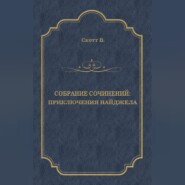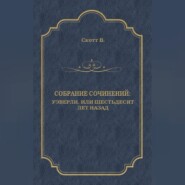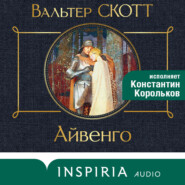По всем вопросам обращайтесь на: info@litportal.ru
(©) 2003-2024.
✖
Life of Napoleon Bonaparte. Volume II
Настройки чтения
Размер шрифта
Высота строк
Поля
649
"In the conviction, that for a forced and unfortunate marriage, divorce is the only reasonable remedy, and that Helvetia and ourselves cannot recover repose and content, except by the rupture of this forced tie, we are firmly resolved to labour at that separation with all possible activity."
650
"The first consul instructed Ney to enter Switzerland with a corps of troops, and caused Reding, the instigator of the disturbances, to be arrested; and he despatched Rapp, in all haste, who providentially arrived at the moment when the parties were coming to blows. Rapp, with a rare presence of mind, alighted from his carriage, placed himself between the two armies, loudly declaring, in the German language, that he was authorised to denounce, as an enemy of the French nation, whichever of the two parties should commence firing, and that he was ordered to introduce a fresh body of French troops into the Swiss territory. His firmness produced the greater effect, as both parties had the same consequences to apprehend, from a second invasion." – Savary, tom. i., p. 301.
651
Annual Register, vol. xliv., p. 671.
652
Annual Register, vol. xliv., p. 678.
653
Aloys Reding was born in 1755. After being confined several months in the castle of Aarsbourg, he was liberated, and being in 1803 elected landemann of the canton of Schweitz, he assisted, in that capacity, at the diet of Fribourg, in 1809. He died at Schweitz in 1819.
654
"Never did Buonaparte less abuse his vast preponderance; and Switzerland is, without contradiction, of all states, near or distant, over which he has exerted his influence, that which he has spared the most, during the fifteen years of his ascendency and glory. In order to pay a proper tribute to truth, I will add, that the act of mediation was impregnated, as much as possible, with the conciliatory and characteristically moderate spirit of Barthélemi." – Fouché, tom. i., p. 254.
655
Montgaillard, tom. vi., p. 5; Jomini, Vie Politique et Militaire de Napoleon, tom. i., p. 532; Savary, vol. i., p. 302.
656
"The deputies, pleased with the result of their mission, requested the first consul to retain the title of Mediator which had been conferred upon him. The country was restored to its wonted tranquillity without the effusion of blood; and the celebrated M. de la Harpe (formerly tutor to the Emperor Alexander,) who had governed it under the title of Director, came to fix his residence in Paris." – Savary, tom. i., p. 302.
657
For Lord Hawkesbury's note-verbal to M. Otto, Oct. 10, 1802, together with his lordship's directions to Mr. Moore, and Mr. Moore's reply, see Annual Register, vol. xliv., pp. 674-678.
658
"That which Sir Walter Scott here advances concerning the blameable policy of Napoleon with respect to the Swiss, when he gave them this act of mediation, is not correct, and I will prove it to be so. I was in Switzerland in 1814, after the invasion of the allies, and certainly this was the period of the greatest enmity towards my brother; it was the epoch of the calumniators and libellers; nay, there existed those who carried their effrontery so far, as to declare that the name of Napoleon was not his own, and that he was called Nicholas. Nevertheless, even at this period, some of the deputies of the Diet, and the landemanns of the different cantons, and the principal Swiss, who frequented the baths of Baden, near Zurich, where I then was, did not refrain from openly declaring, that they could not complain of the Emperor Napoleon, that he had put an end to their difficulties, and that they could feel nothing but gratitude towards him." – Louis Buonaparte, p. 38.
659
M. Necker.
660
Clement Paoli, elder brother of the general, a good soldier, an excellent citizen, a real philosopher. At the beginning of an action he could not bring himself to engage in personal combat; he gave his orders with the sang froid which characterises the good officer. But he no sooner saw his men begin to fall, than he seized his arms with a convulsive movement of indignation, and made use of them, exclaiming – "Unjust men! why break down the barriers of nature? why must you be enemies of your country?" Austere in his manners, simple in his habits, he has always lived retired. It was only in great emergencies that he came forward to give his opinion, which was very seldom departed from. – S.
661
A small town in the department of Vaucluse, four leagues east of Avignon, having resisted Cartaux's army, was carried by assault, 26th July, 1793. – S.
662
"Les notes historiques, qui sont inserees comme appendice à la fin du dernier volume de la Vie de Napoleon, sont attribées au General Bernadotte, actuellement Roi de Suède, mais qu'il faut plutôt regarder comme l'ouvrage d'un ami indiscret. C'est pourtant dans ces notes que, sans les citer jamais, Bourrienne a évidemment puisé à pleines mains." —Observations sur le 18 Brumaire de M. de Bourrienne, par M. Boulay de la Meurthe, Ancien Ministre d'Etat.
663
When Bernadotte came into the ministry, it became a question whether Buonaparte should not be sent for from Egypt. – "It is the army you mean," said the minister, – "for as to the general, you know he has an eye to the dictatorship; and sending vessels to bring him to France, would just be giving it to him."
A French fleet was at that time cruizing in the Mediterranean, – the minister insisted that it should be ordered to Toulon.
664
It was by no means from friendship that Buonaparte went to Bernadotte's on this occasion; but really to render the Directory and the friends of the Republic suspicious as to that general's intentions.
"In the conviction, that for a forced and unfortunate marriage, divorce is the only reasonable remedy, and that Helvetia and ourselves cannot recover repose and content, except by the rupture of this forced tie, we are firmly resolved to labour at that separation with all possible activity."
650
"The first consul instructed Ney to enter Switzerland with a corps of troops, and caused Reding, the instigator of the disturbances, to be arrested; and he despatched Rapp, in all haste, who providentially arrived at the moment when the parties were coming to blows. Rapp, with a rare presence of mind, alighted from his carriage, placed himself between the two armies, loudly declaring, in the German language, that he was authorised to denounce, as an enemy of the French nation, whichever of the two parties should commence firing, and that he was ordered to introduce a fresh body of French troops into the Swiss territory. His firmness produced the greater effect, as both parties had the same consequences to apprehend, from a second invasion." – Savary, tom. i., p. 301.
651
Annual Register, vol. xliv., p. 671.
652
Annual Register, vol. xliv., p. 678.
653
Aloys Reding was born in 1755. After being confined several months in the castle of Aarsbourg, he was liberated, and being in 1803 elected landemann of the canton of Schweitz, he assisted, in that capacity, at the diet of Fribourg, in 1809. He died at Schweitz in 1819.
654
"Never did Buonaparte less abuse his vast preponderance; and Switzerland is, without contradiction, of all states, near or distant, over which he has exerted his influence, that which he has spared the most, during the fifteen years of his ascendency and glory. In order to pay a proper tribute to truth, I will add, that the act of mediation was impregnated, as much as possible, with the conciliatory and characteristically moderate spirit of Barthélemi." – Fouché, tom. i., p. 254.
655
Montgaillard, tom. vi., p. 5; Jomini, Vie Politique et Militaire de Napoleon, tom. i., p. 532; Savary, vol. i., p. 302.
656
"The deputies, pleased with the result of their mission, requested the first consul to retain the title of Mediator which had been conferred upon him. The country was restored to its wonted tranquillity without the effusion of blood; and the celebrated M. de la Harpe (formerly tutor to the Emperor Alexander,) who had governed it under the title of Director, came to fix his residence in Paris." – Savary, tom. i., p. 302.
657
For Lord Hawkesbury's note-verbal to M. Otto, Oct. 10, 1802, together with his lordship's directions to Mr. Moore, and Mr. Moore's reply, see Annual Register, vol. xliv., pp. 674-678.
658
"That which Sir Walter Scott here advances concerning the blameable policy of Napoleon with respect to the Swiss, when he gave them this act of mediation, is not correct, and I will prove it to be so. I was in Switzerland in 1814, after the invasion of the allies, and certainly this was the period of the greatest enmity towards my brother; it was the epoch of the calumniators and libellers; nay, there existed those who carried their effrontery so far, as to declare that the name of Napoleon was not his own, and that he was called Nicholas. Nevertheless, even at this period, some of the deputies of the Diet, and the landemanns of the different cantons, and the principal Swiss, who frequented the baths of Baden, near Zurich, where I then was, did not refrain from openly declaring, that they could not complain of the Emperor Napoleon, that he had put an end to their difficulties, and that they could feel nothing but gratitude towards him." – Louis Buonaparte, p. 38.
659
M. Necker.
660
Clement Paoli, elder brother of the general, a good soldier, an excellent citizen, a real philosopher. At the beginning of an action he could not bring himself to engage in personal combat; he gave his orders with the sang froid which characterises the good officer. But he no sooner saw his men begin to fall, than he seized his arms with a convulsive movement of indignation, and made use of them, exclaiming – "Unjust men! why break down the barriers of nature? why must you be enemies of your country?" Austere in his manners, simple in his habits, he has always lived retired. It was only in great emergencies that he came forward to give his opinion, which was very seldom departed from. – S.
661
A small town in the department of Vaucluse, four leagues east of Avignon, having resisted Cartaux's army, was carried by assault, 26th July, 1793. – S.
662
"Les notes historiques, qui sont inserees comme appendice à la fin du dernier volume de la Vie de Napoleon, sont attribées au General Bernadotte, actuellement Roi de Suède, mais qu'il faut plutôt regarder comme l'ouvrage d'un ami indiscret. C'est pourtant dans ces notes que, sans les citer jamais, Bourrienne a évidemment puisé à pleines mains." —Observations sur le 18 Brumaire de M. de Bourrienne, par M. Boulay de la Meurthe, Ancien Ministre d'Etat.
663
When Bernadotte came into the ministry, it became a question whether Buonaparte should not be sent for from Egypt. – "It is the army you mean," said the minister, – "for as to the general, you know he has an eye to the dictatorship; and sending vessels to bring him to France, would just be giving it to him."
A French fleet was at that time cruizing in the Mediterranean, – the minister insisted that it should be ordered to Toulon.
664
It was by no means from friendship that Buonaparte went to Bernadotte's on this occasion; but really to render the Directory and the friends of the Republic suspicious as to that general's intentions.

















